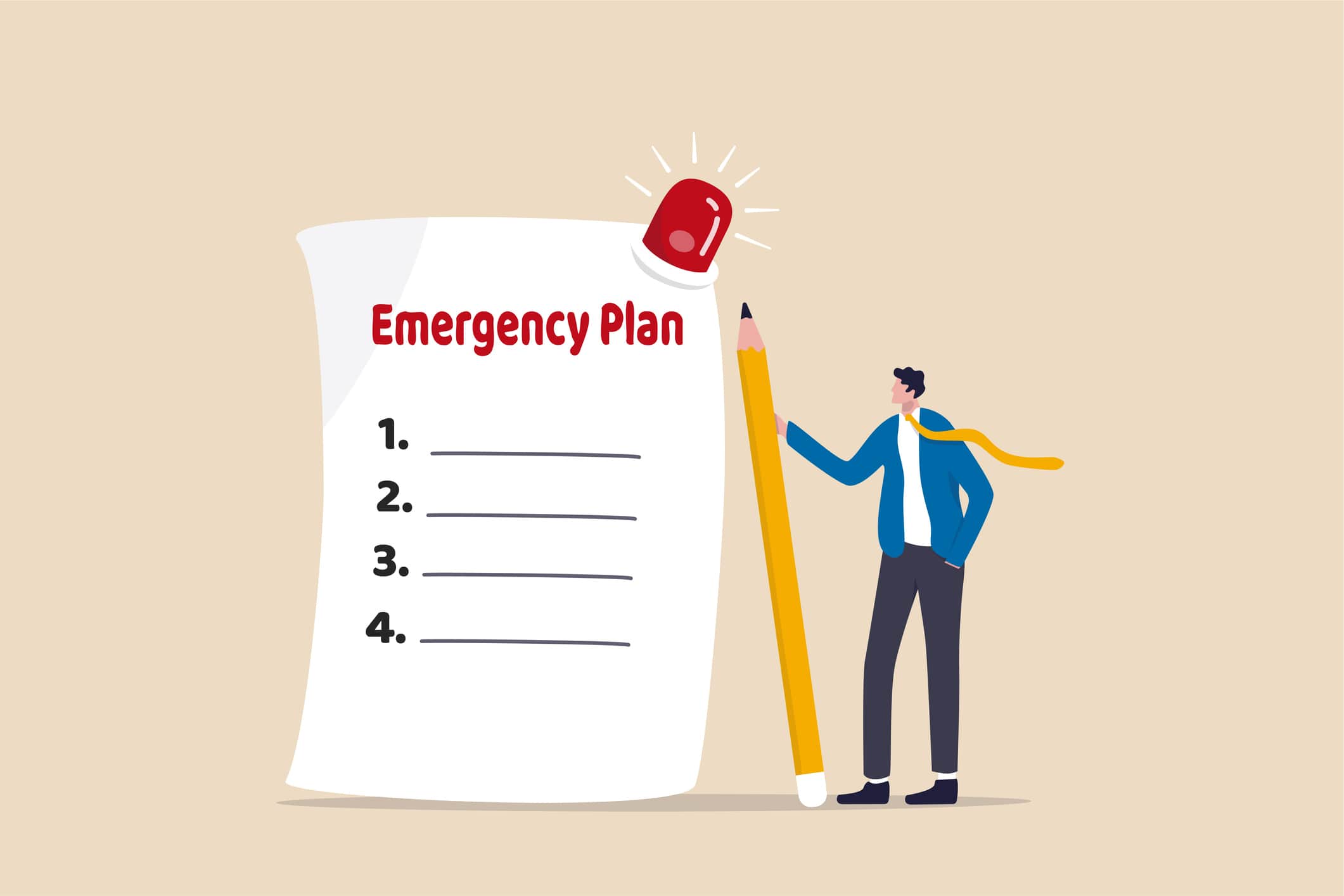Choose an account you would like to open below. If you need assistance, feel free to contact us or visit a branch.
Choose an account you would like to open below. If you need assistance, feel free to contact us or visit a branch.

As a small business owner, being prepared for emergencies is essential. Disasters such as hurricanes, cyberattacks, power outages, and pandemics can strike at any time, disrupting revenue, operations, and your reputation. The difference between businesses that recover quickly and those that don’t often comes down to one thing: preparation.
Here’s how to build a business emergency plan to ensure financial resilience:
Emergencies may be unpredictable, but your financial readiness doesn’t have to be. By planning ahead, you can help ensure your business weathers any storm.
At Colony Bank, we’re committed to helping business owners prepare not only for growth, but also for resilience. Talk with your business banker about strategies to safeguard your cash flow, protect your accounts, and strengthen your continuity plan.
You will no longer be subject to, or under the protection of the privacy and security policies of Colony.Bank. Colony.Bank is not endorsing or guaranteeing the products, information, or recommendations provided by linked websites. Colony.Bank is not liable for any failure of products or services advertised on linked websites.
Ameriprise.com is not owned or operated by Colony Bank and has its own privacy policy and terms of use. We encourage you to read through the privacy policy (ameriprise.com/privacy) and terms of use (ameriprise.com/legal/website-rules) and familiarize yourself with the ameriprise.com site before opening an account or completing a transaction. Colony Bank is not responsible for the availability or content of information on ameriprise.com and Colony Bank does not represent either Ameriprise Financial, Inc. or you, should you open an account or enter into a transaction.
Investment Products:
![]()
Ameriprise Financial Services, LLC is not an FDIC insured bank; FDIC insurance only covers the insolvency of FDIC-insured banks.
You’re leaving Colony Bank’s website and will be taken to the Allstate Insurance Company website to learn more about insurance products. This site is not owned or controlled by Colony Bank. Insurance products are not FDIC insured, are not deposits or guaranteed by the Bank, and may lose value.